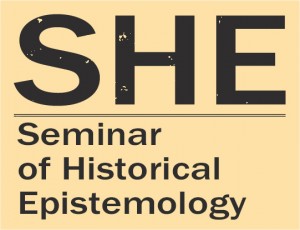Roberto Lalli (Max Planck Institute for the History of Science – Berlin) will give two talks and one (co-organized) workshop in February 2020 at the University of Milan:
Participation is open to everyone. However, participants to the workshop are expected to actively contribute to discussions, so they are kindly requested to register for the event.
If you would like to attend, please email luca.guzzardi@unimi.it (subject “collaboration workshop”).
 The traditional purpose of epistemology as a branch of philosophy is the investigation and clarification of the fundamental structures of knowledge, e.g. how we gain (new) knowledge and how it changes, if it is justified or not, if different kinds of knowledge exist and in what they consist. With special reference to scientific knowledge, historical epistemology tries to understand such structures by situating their “crystallization” as scientific theories and practices in the contexts (historical, social, political, economic, artistic, material, etc.) in which they emerge, develop, transform or disappear.
The traditional purpose of epistemology as a branch of philosophy is the investigation and clarification of the fundamental structures of knowledge, e.g. how we gain (new) knowledge and how it changes, if it is justified or not, if different kinds of knowledge exist and in what they consist. With special reference to scientific knowledge, historical epistemology tries to understand such structures by situating their “crystallization” as scientific theories and practices in the contexts (historical, social, political, economic, artistic, material, etc.) in which they emerge, develop, transform or disappear.
This seminar aims at comparing and contrasting different approaches to historical epistemology and problems related to it. A variety of topics will be addressed, amongst others: the conditions for the emergence of a concept; the birth of theoretical ideas from practical knowledge; the formation and influence of standards and values in the scientific practice; the renewal of themes, methods and trends in the history of science; the role of instruments and objects in science making, etc.